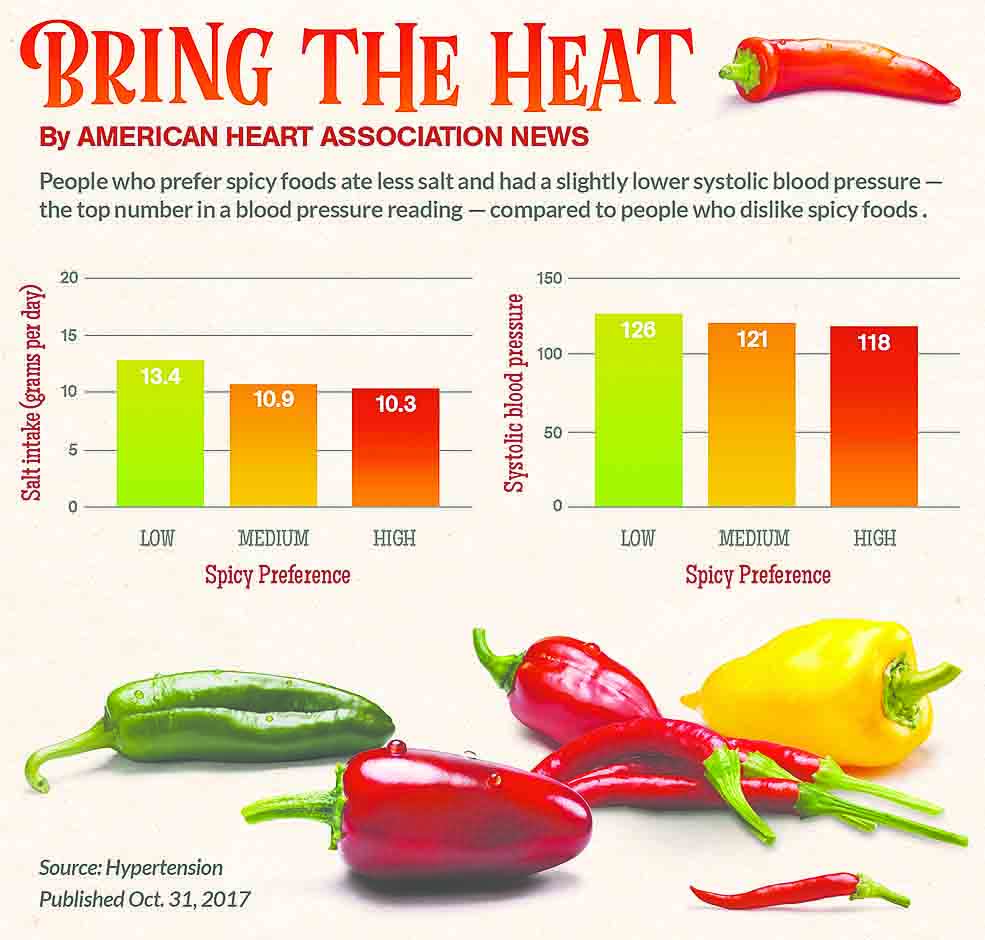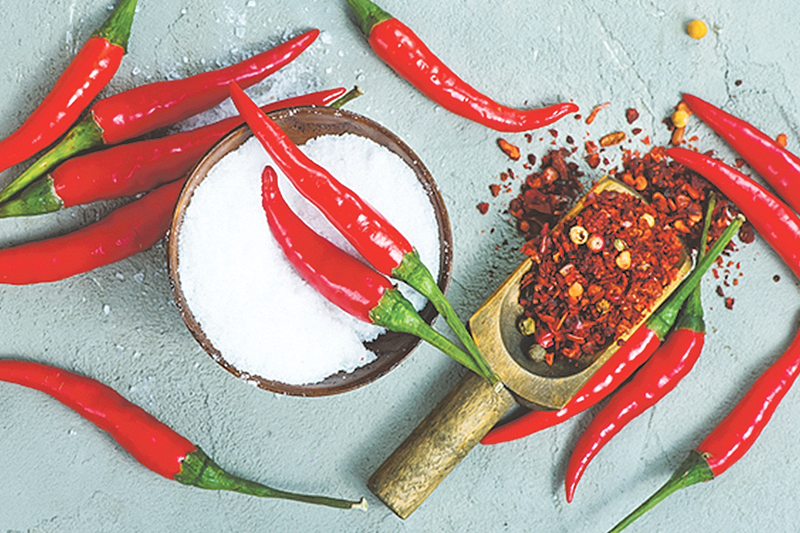By American Heart Association News
Adding some spice to food may make you more aware of the taste of salt, a new study suggests.
The findings, published in the journal “Hypertension,” indicate that eating spicy foods may help us consume less salt and, ultimately, lower blood pressure.
According to the World Health Organization, people are eating too much salt across the globe, increasing the prevalence of high blood pressure, heart disease and stroke.
That problem prompted Zhiming Zhu, M.D., a professor of cardiovascular medicine and metabolism at the Chongqing Institute of Hypertension in China, to study alternative ways to reduce salt intake.
He and his colleagues decided to specifically focus on spicy food.









